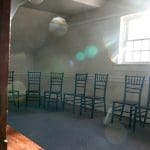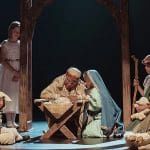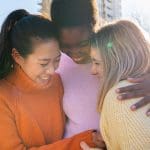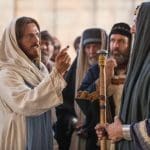Beneath the historic vaulted ceilings of the Salt Lake Tabernacle, voices rose in harmony on Sunday, April 27, 2025—not just in sacred song, but in a powerful chorus of unity and love. The gathering brought together hearts and souls from across the religious spectrum throughout the Salt Lake area.
The occasion was the Salt Lake Interfaith Roundtable’s annual “Sacred Music Evening”—a tradition first sparked by the global spotlight of the 2002 Winter Olympics. In the decades since, it has quietly evolved into one of Utah’s most profound expressions of spiritual kinship.
In a world often fractured by division and discord, the Roundtable offers something both rare and vital: a celebration of shared humanity that strengthens rather than softens individual beliefs.
“It’s sort of like you put a frame around your faith, and the other faiths are sort of a frame around your own,” said Rabbi Alan Scott Bachman, Roundtable co-chair and one of the evening’s musical contributors. “Just as a frame enhances a picture, interfaith experiences enrich each person’s own faith.”

History Rooted in Solidarity
The Salt Lake Interfaith Roundtable had humble beginnings—as a logistical solution during the 2002 Winter Olympics, created to ensure athletes from around the world had access to faith services during the games.
But something deeper took root. “Some great friendships developed out of that,” recalled Rabbi Alan Scott Bachman. “And so they decided to continue operating after the Olympics.”
What could have ended in 2002 instead blossomed into an enduring celebration of shared humanity—one that has grown in meaning and participation year after year.
“There’s a special feeling in the Tabernacle when different faiths and different parts of society come together to do something peaceful,” Bachman said. “That’s when God sort of shows up.”
And that presence, he emphasized, isn’t just symbolic.
“God is omnipresent,” he continued, “but there are moments when you feel God more than others.” Such moments, he said, are profoundly sacred—like when Jewish and Muslim children stood side by side in song, not long after the October 7, 2023 conflict.
Those glimpses of unity, born of pain and possibility, are what make the Roundtable’s work not just timely—but timeless.

The Strength in Shared Difference
Interfaith dialogue often sparks concerns about doctrinal compromise or the dilution of religious identity. But for Rabbi Alan Scott Bachman, his experience has proven the opposite.
“There are many instances where people became stronger in their own faith,” he observed. “Once you have to tell somebody about your own church, you sort of have to know what your own church is—and what it believes.”
Beyond spiritual reflection, the Roundtable has fostered deep, enduring friendships. Bachman recalled how members of the Hindu community—his friends Neale and Indra Neelameggham—drove hours from Utah to Colorado to attend his rabbinic ordination. “We became so close,” he said. “And I have other friends like that too from the Roundtable—Episcopal, LDS, Muslim, Buddhist. Many of us have formed connections that go far beyond Roundtable activities.”
That spirit of unity and friendship found a powerful expression in the finale of the Sacred Music Evening. The audience rose together for a moving rendition of “Let There Be Peace on Earth”—with Rabbi Bachman at the piano, his wife Andalin Shekhinah Bachman on flute, and Bonnie Goodliffe at the organ. As the music swelled, the congregation joined in:
“With God, our Creator, family all are we.
Let us walk with each other in perfect harmony.”
It was more than a performance—it was a lived expression of the Roundtable’s purpose: harmony without erasure, unity without uniformity.

A Response to Division
Rabbi Bachman offered a grave reminder of the urgency behind interfaith work: “We’re now at a time when we can destroy the entire planet… and so we can’t afford to be this divided.”
Indeed, when people share songs, stories, and prayers, the perceived “otherness” dissolves. “We need to learn what our commonalities are,” Bachman urged, “and understand that people we thought were very different from us aren’t really all that different.”

Peaceful Pathways, Purposeful People
The success of the Sacred Music Evening is a testament to the dedication and vision of its organizers. Rabbi Alan Scott Bachman, Chair of the event, was joined in leadership by Interfaith Roundtable co-chairs Josie Stone and Pastor Curtis Price. Together, they were supported by a vibrant board representing a rich tapestry of faith traditions—Judaism, Islam, Buddhism, Christianity, Hinduism, Sikhism, and Indigenous spirituality.
In an age where online algorithms often reward division and controversy, gatherings like this offer a powerful counter-narrative: that true strength is found in connection.
“Every year, people walk out and say, ‘Oh, this was the best one ever,’” said Bachman. “And maybe they’re right. Because each year brings a new moment of divine presence that leaves you speechless.”
As the final strains of sacred music echoed through the Tabernacle’s storied rafters, what lingered was more than the memory of beautiful sound. It was a sacred collective vow—a quiet but resolute commitment.
A vow that with faith, friendship, and shared intention, peace on earth isn’t just a hope—it’s a beginning that starts with each of us.


















